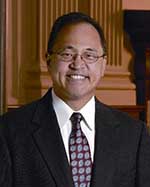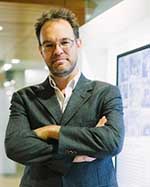Regulating the Cloud: Policy for Computing Infrastructure
Regulating the Cloud: Policy for Computing Infrastructure, (MIT Press, 2015), analyzes the mystery surrounding the Cloud. One way to define the Cloud is the moment where computing has become, both materiality and symbolically, infrastructure, that is, a socio-technical system that has become ubiquitous, essential, and foundational. As infrastructure then, the Cloud necessarily becomes the focus of a series of policy concerns that deal with issues of market regulation, fairness, universal access, reliability, criticality, national security, sharing of limited resources, congestion, inter-network competition, national economic welfare, capacity planning, monopoly, antitrust, etc.
We explore the implications for governance of the historical development of modular systems. These systems demonstrate that early-stage design choices persist, often with unforeseen consequences, and become increasingly difficult to correct as the infrastructure become ubiquitous, its functionality expands, and the nature of the traffic it services evolves. Familiarity with these historical developments is essential to understanding current policy debates, as they illustrate the constraints on the Cloud’s future evolution. Additional information about the text can be found on MIT Press.
Presenters
 Christopher S. Yoo is the John H. Chestnut Professor of Law, Communication, and Computer & Information Science and the Founding Director of the Center for Technology, Innovation and Competition at the University of Pennsylvania. His major research initiatives include innovative approaches to connecting more of the world’s citizens to the Internet. Professor Yoo is an influential scholar in the realm of technology and law having written over 70 articles and frequently testifying before Congress, the Federal Communications Commission, the Federal Trade Commission, and foreign regulatory authorities.
Christopher S. Yoo is the John H. Chestnut Professor of Law, Communication, and Computer & Information Science and the Founding Director of the Center for Technology, Innovation and Competition at the University of Pennsylvania. His major research initiatives include innovative approaches to connecting more of the world’s citizens to the Internet. Professor Yoo is an influential scholar in the realm of technology and law having written over 70 articles and frequently testifying before Congress, the Federal Communications Commission, the Federal Trade Commission, and foreign regulatory authorities.
 Jean-François Blanchette is an Associate Professor in the Department of Information Studies at UCLA. His research focuses on the issues of electronic authenticity, computerization of bureaucracies, and the evolution of the computing infrastructure for the past 15 years. He is the author of Burdens of Proof: Cryptographic Culture and Evidence Law in the Age of Electronic Documents (MIT Press, 2012), and he is currently completing a manuscript on the evolutionary dynamics of the computing infrastructure entitled: Running on Bare Metal: A Material History of Bits.
Jean-François Blanchette is an Associate Professor in the Department of Information Studies at UCLA. His research focuses on the issues of electronic authenticity, computerization of bureaucracies, and the evolution of the computing infrastructure for the past 15 years. He is the author of Burdens of Proof: Cryptographic Culture and Evidence Law in the Age of Electronic Documents (MIT Press, 2012), and he is currently completing a manuscript on the evolutionary dynamics of the computing infrastructure entitled: Running on Bare Metal: A Material History of Bits.
